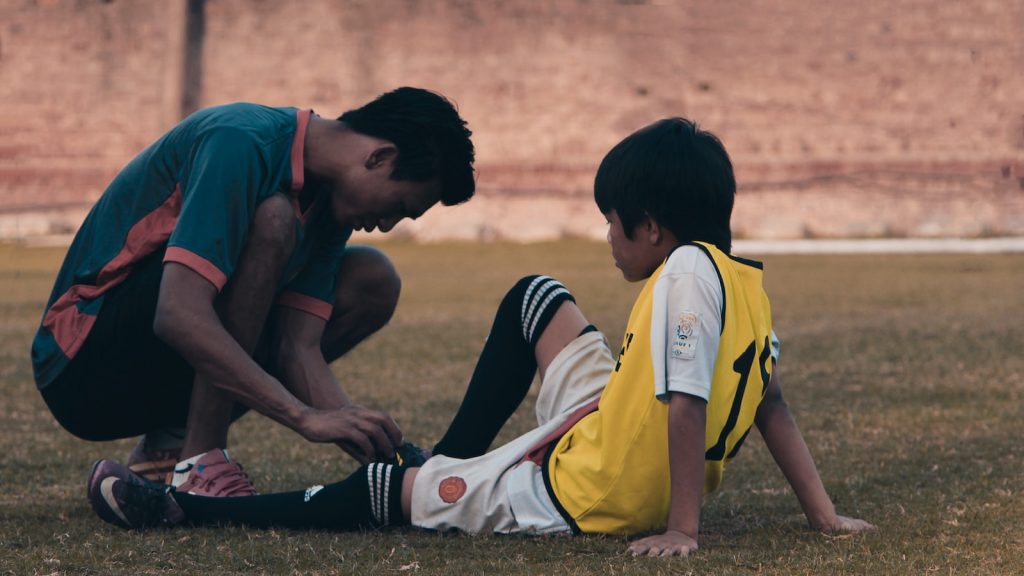
Are you injured because someone else was negligent? Did you suffer permanent injuries? Do you feel like you were cheated out of justice?
Injured people deserve compensation for their injuries. But how do you get compensated? It’s not as simple as filing a lawsuit against the person who caused your injury. Many legal hurdles must be overcome before filing a personal injury lawsuit.
This guide will help you understand the personal injury lawsuit process from beginning to end. From filing the lawsuit to collecting evidence, you’ll learn everything you need to know to win your case.
You may feel helpless and overwhelmed when you’re injured due to another person’s negligence. The other person is called the “at-fault party” or “defendant.” It would be best if you never tried to handle this situation alone. A lawyer can protect your rights and ensure you receive the financial compensation you deserve.
The first step in filing a personal injury lawsuit is determining whether you have a valid claim. This means proving that the defendant owed you a duty of care, that they breached that duty, and that the breach caused you harm.
Feeling upset and angry after an accident is understandable, but don’t let those emotions cloud your judgment. You must file a personal injury lawsuit to pursue compensation for your injuries.
Here’s what you should know about the personal injury lawsuit process.
Step 1: File a Personal Injury Claim
After an accident occurs, you’ll need to report it to police officers. If you were hurt in a car crash, you must call 911 immediately.
Police officers will then investigate the incident and determine whether there was any wrongdoing from the driver or passenger involved in the collision.
If the officer determines that the driver or passenger was negligent, they will issue a traffic citation.
Next, you’ll need to contact an attorney. An experienced personal injury lawyer will help you navigate the legal system and ensure you receive fair compensation for your injuries.
In most states, filing a Tampa personal injury lawsuit requires filing paperwork and submitting it to a court. In other states, however, filing a lawsuit is much easier. Understanding the differences between these two processes is essential to file your case correctly. The statute of limitations puts a time limit on when you have to file a lawsuit. Understanding your state’s statute of limitations will help you decide when to file your case.
Filing personal injury claims involves filling out forms and sending them to court. The documents include details about who was injured, where the accident occurred, and how much money the victim needs to recover.
On the other hand, filing a lawsuit means taking legal action against someone who has caused harm to another person. Filing a lawsuit usually takes less time than filing a personal injury claim, but it does require hiring a lawyer.
Whether you file a personal injury claim or a lawsuit, it’s important to remember that both options can result in a payout. For example, if you win a lawsuit, you can collect damages from the defendant. However, filing a lawsuit gives you more control over the outcome of your case.
Step 2: Obtain Medical Care
Once you’ve filed a claim, you must seek medical treatment. This is especially true if you suffer serious injuries such as broken bones or internal bleeding.
You’ll also need to see a doctor if you suffer from chronic pain or headaches. These symptoms could indicate ongoing problems that require further treatment.
In most states, if you suffer from injuries due to someone else’s negligence, you have the legal right to file a personal injury lawsuit against them. However, medical treatment after an accident can be difficult, especially if you’re injured while traveling. In many cases, insurance companies require that you receive treatment within a certain amount of time, and if you fail to meet these requirements, you could lose your case.
You’ll need to contact a personal injury attorney specializing in personal injury law to avoid losing your case. An experienced lawyer can help you navigate the complicated world of personal injury lawsuits, and they can advise you on whether you have a valid claim.
While you wait for your attorney to review your case, you can still seek medical attention. Follow the doctor’s instructions and schedule appointments with specialists immediately. Don’t hesitate to ask questions if you feel confused or worried about anything. Getting everything done quickly is best since delays can lead to complications.
Step 3: Collect the Evidence
You’ll want to collect evidence related to the accident. For example, you’ll need to take pictures of the crash scene and gather information about the vehicle involved.
You’ll also want copies of the police report and medical records.
In most cases, personal injury lawsuits require medical care. Obtaining medical records from doctors who treated you after your accident is essential. These records can prove that you were injured and provide evidence that someone else’s negligence caused your injuries.
It’s also important to document your treatment. Take photos of your injuries, write notes about your symptoms, and record conversations with your doctor. Ensure that these documents are kept safely and securely until you decide whether or not to file a lawsuit. Medical documents are great evidence in a personal injury lawsuit. These documents are used in the “discovery process” of a lawsuit.
After obtaining medical records, you’ll need to gather witness statements. Witnesses can include friends, family members, co-workers, and anyone else who saw or heard anything unusual during or after your accident.
Next, you’ll need to contact potential witnesses. Write letters or emails asking if they’d be willing to speak with you about your case. Please provide details about the incident and ask them to share their stories. Don’t forget to follow up with each person to inform them that you received their statement.
Once you have the necessary documentation, you’ll need to decide whether or not to pursue a lawsuit. The decision to sue is yours alone, but you’ll want to consider the following factors:
- Was the other party negligent?
- Did the other party cause your injuries?
- Is the amount of money you seek fair compensation for your damages?
- Do you feel confident that you can win?
- Are you prepared to go through the legal process?
You’ll need to hire a lawyer to proceed with a lawsuit. Hiring a lawyer is expensive, but avoiding paying out of pocket for medical bills and lost wages is worth it.
At this point, you’ll need to prepare yourself mentally and physically for the upcoming trial. You’ll need to stay calm and focused while preparing for the trial. You’ll also need to be ready to answer questions from opposing counsel.
Step 4: Hire a Personal Injury Lawyer
Once you’ve collected the necessary evidence, you must hire an attorney. A personal injury lawyer will help guide you through the legal process and ensure you receive full compensation for your injuries. They’ll also represent you during negotiations with insurance companies.
Injury cases can be complicated, especially if someone has suffered severe injuries. Hiring a personal injury lawyer who knows how to handle these cases is essential.
Before hiring a lawyer, ask friends and family members for recommendations. Also, look online for reviews from other clients. Ask questions about their experience working with the lawyer, including whether they were satisfied with the case’s outcome.
After finding a few lawyers, meet with each of them in person to discuss your case. Ensure you feel comfortable with the lawyer and that they seem honest and trustworthy. Hiring a lawyer who doesn’t appear professional could lead to a bad experience.
After reviewing your case, the lawyer will provide a written estimate outlining their fees and costs. Make sure you read over the terms of the contract before signing it. Also, make sure that you understand everything included in the fee structure. For example, if the lawyer charges a flat fee, they will likely charge additional fees based on the complexity of your case.
Also, ensure you understand the contract terms you sign with the lawyer. Don’t hesitate to ask questions during the initial consultation. The sooner you begin talking to a lawyer, the sooner you can move forward with the legal process.
Step 5: Going To Trial or Negotiate Settlement
The final step in pursuing compensation for your injuries involves negotiating a settlement with the responsible party’s insurer.
Insurance companies often offer to settle claims quickly and without going to trial. However, they may try to lowball their liability and deny responsibility for causing your injuries.
To avoid this, you’ll need to enter settlement negotiations to get a fair settlement amount. Sometimes, you can reach a settlement agreement before filing a lawsuit.
- This includes medical bills, lost wages, and other expenses incurred due to the accident.
- You may also need to submit expert testimony regarding the cause of your injuries.
- A personal injury lawyer will help you receive fair financial compensation for your injuries.
While the trial won’t last long, the aftermath could last months or years. After the trial, you’ll need to continue receiving medical attention. You might also need to undergo physical therapy or counseling. Sometimes, you may need to change jobs or move to another city.
You’ll also need to consider any financial losses you’ve incurred due to your injuries. You might need to pay for medical expenses, missed work, and transportation costs.
Although it’s difficult to predict the outcome of a personal injury lawsuit, you should always expect to lose at least some of your initial investment. However, you shouldn’t worry too much about the cost of hiring an attorney. Your attorney will handle everything related to the lawsuit, so you don’t need to spend any additional money.
Talk to a personal injury lawyer if you are considering suing someone for an injury. They can help you understand the process and advise you on what to expect.
